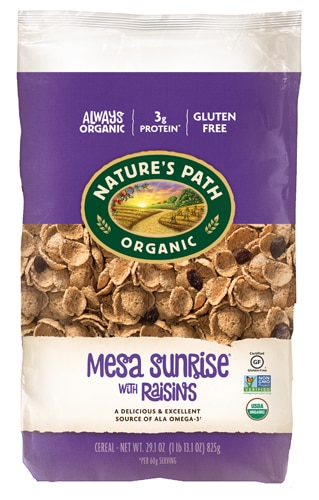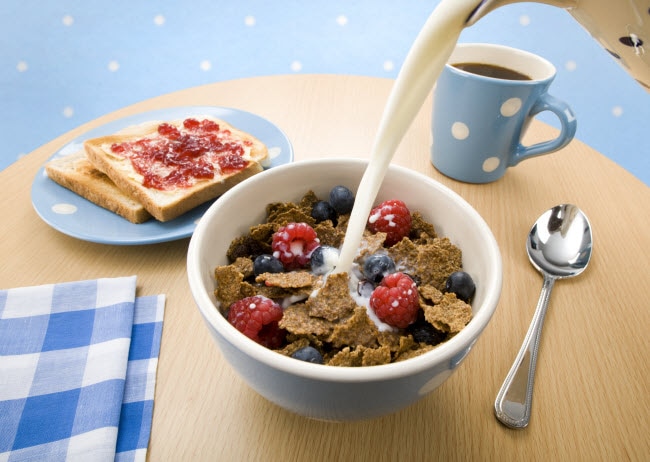Waking up to a great breakfast sets the tone for the entire day. Make the right choices, and you will have the energy necessary for your mind and body to operate at their best.
Eating breakfast gets your metabolism going, which helps you burn calories throughout the day. Studies have found that people who eat breakfast regularly tend to have a lower body mass index.
Breakfast eaters have a lower risk of high blood pressure, high cholesterol and heart disease, according to the American Heart Association.
In addition, studies have found that benefits of breakfast include:
- Improving academic performance in children
- Maing you less likely to snack on unhealthful foods throughout the day
- Helping you consume recommended daily levels of calcium and fiber
But for too many Americans, breakfast is the forgotten meal. In fact, about 10 percent of Americans regularly skip breakfast, according to a 2011 NPD Group survey.
So, for millions of people, the first order of business is simply eating breakfast of any type, says Sonya Angelone, a San Francisco-based registered dietitian nutritionist and spokesperson for the Academy of Nutrition and Dietetics.
“It doesn’t have to be large, or prepared from scratch,” she says. Instead, it just needs to follow a few basic rules.
Breakfast: What to eat – and avoid
For starters, Angelone urges you to avoid certain types of fare, such as:
- Fried or high-fat foods, including fried eggs, bacon and home fries
- Refined carbohydrates, such as pastries
- Pancakes with butter and syrup
“These can make you feel sluggish, since they take a long time to digest,” she says.
In addition, foods with a lot of sugar can leave you with a “sugar high,” followed by a “crash with feelings of hunger and fatigue soon after,” she says. That cycle can cause you to eat more, contributing to weight gain.
Instead, she urges another approach. “I recommend a template of one complex carbohydrate, one protein and one to two servings of produce,” she says. You can also add a small amount of a healthy fat.
For example, you can try a whole-grain English muffin -- or a half-muffin -- with:
- 1 tablespoon of almond butter
- 1 cup of organic Greek yogurt
- 1 cup of blueberries
- Green tea
Another breakfast might consist of a half-cup of gluten-free granola with 1 cup of strawberries, 1 cup of kefir and decaffeinated coffee.
Other options include:
- A smoothie (with milk, frozen fruit, protein powder and 1 cup of spinach)
- A poached egg with whole-grain bread, one-quarter avocado and an orange
- Oatmeal spiced with cinnamon and vanilla (with milk, 1 ounce of sliced almonds and 1 cup of strawberries)
- A high-fiber, low-sugar protein bar (with a banana, 2 tablespoons of cashew butter and café latte)
Staying hydrated
Even before you eat breakfast, you should make sure you are hydrated. “People wake up in a dehydrated state, so it is important to replenish water,” Angelone says.
She recommends starting your day with 8 to 16 ounces of water soon after you rise. “Avoid excess caffeine, which is not as hydrating,” she says.
Also steer clear of fruit juices, which are loaded with calories and sugar, and contain no fiber. “Eat the (whole) fruit instead,” she says.
It probably goes without saying that drinking alcoholic beverages in the morning is not wise. But you also should skip energy drinks, which contain both sugar and caffeine.
“This can increase heart rate, contribute to anxiety and possibly elevate blood pressure,” Angelone says.
So, stick to water, and drink it throughout the morning to stay hydrated, she says. If you find water flavorless and difficult to drink, “add some lemon to water, or other flavors,” Angelone says.




